Not always “staying in their lane”. (From top left, clockwise): Bob Murphy, Basil Zempilas, Leigh Matthews, Rohan Connolly.
“Stick to footy”. “Shut up and dribble”. “Don’t give up your day job, wordsmith”. Former Sydney Swan Brandon Jack will have copped at least two of these kinds of barbs (three if he’s into basketball), which serve as low-hanging fruit for critics when someone seen as ‘unqualified’ to discuss current affairs says, writes or tweets something they disagree with.
Ironically, many of the better-known gems from this genre come from self-appointed doyens gifted a pulpit to preach by media moguls (think Herald-Sun opinion page). Are they any more qualified to comment than the rest of us? Likely not, but they can be counted upon to echo the said mogul’s worldview. That, readers, is why they’re there.
I hate the talk around keeping politics out of sport. A) ignoring a conversation is a statement in itself and B) you can’t claim that sport is a central component of this nations cultural identity but then say it should stick to the field when it attempts to shift the culture.
— Brandon Jack (@brandonjack33) January 21, 2021
There are countless cases of athletes, movie stars, singers and – yes – journalists venturing out from their perceived areas of expertise, offering a controversial opinion, and having their heads chopped off for the trouble.
Some deserve everything they get, but others, you might be surprised to hear, actually know what they’re on about.
It’s the latter that deserve to at least be heard out, whether you agree with them or not. Below are four case studies of people from the world of football, two well-informed, one unenlightened and another who surely stirs up trouble just for ratings.
LEIGH MATTHEWS
Many consider Matthews Australian football’s ‘G.O.A.T.’ (Greatest Of All Time). He played 332 games, won four premierships, won countless awards (by some injustice not including a Brownlow) and had one celebrated encounter with the Windy Hill point post in 1982 (the post came off second best).
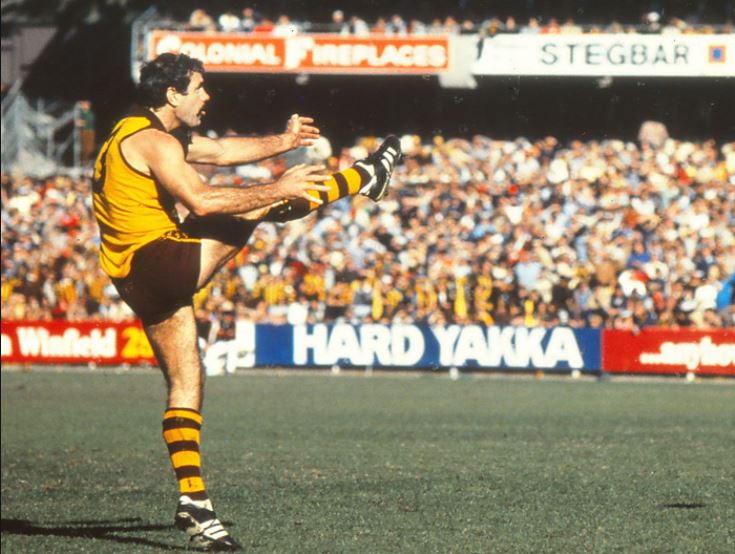
Then there’s his coaching resume, which is no less impressive. The drought-breaking Collingwood premiership of 1990 was followed by three flags in-a-row with the stellar Brisbane teams of 2001-03. Since retiring as a coach, Matthews has worked with Channel 7 and 3AW while continuing behind-the-scenes with the Lions.
An impressive footy resume, to be sure, but observers were surprised when Leigh recently opined on the issue of US race relations (specifically, the Black Lives Matter movement, protesting the disproportionate number of African American deaths at the hands of police) earlier this month.
After Deputy Prime Minister Michael McCormack sparked controversy over his use of the phrase “All Lives Matter”, Matthews wondered aloud on Twitter what all the fuss was about.
Sometimes you just scratch your head with what you hear , being outraged about a simple uttering that all lives matter is bewildering as is the view that violent riots are ok if you support the underlying cause , beats me !
— Leigh Matthews (@LeighRMatthews) January 12, 2021
Cue instant controversy, with the usual suspects on the left and right showering brickbats and bouquets in seemingly equal number. Matthews and other McCormack apologists point out that, at surface value, “all lives matter” is about as inoffensive a term as advocating for world peace.
“I would have thought that it was dangerous to affirm that all lives don’t matter, but I guess two plus two equal five and freedom is slavery,” Spectator Australia’s Tim O’Hare wrote.
It’s a disingenuous, shallow argument. All lives won’t matter until black lives matter, too. As things stand, the callous, lethal treatment of a seemingly endless stream of African Americans suggests that, in the eyes of at least some US authorities, black lives don’t matter much at all.
In a mobile phone video of George Floyd’s death in Minneapolis, Minnesota, last year, Officer Derek Chauvin keeps a knee pressed on the back of his neck, blocking his windpipe and starving him of oxygen, for more than eight minutes.
For white suspects, there are fewer instances per capita of the knee-on-neck chokehold inflicted on Floyd that day, and none on record of it occurring for eight minutes or more.
In 2014, 12-year old African-American youngster Tamir Rice was shot and killed in a Cleveland, Ohio, playground by a white policeman who, upon arriving on the scene, immediately assumed a toy held by the child was in fact a gun. White children are rarely the subject of such instant assumption, a phenomenon known as profiling.
In summary, Leigh Matthews fell for the prevailing narrative of “all lives matter”, heavily promoted by the popular mass media (more on that later).
He clearly didn’t study the issue in the necessary depth, and he accepted, seemingly without any analysis of his own, a take that was served up to him by both the media and – outrageously – the Deputy Prime Minister, who should know better. If Leigh isn’t prepared to look at an issue properly, he should “stick to footy”.
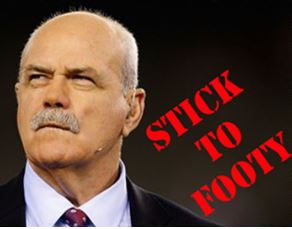
BOB MURPHY
A nice guy with a social conscience, Bob Murphy gave the Western Bulldogs silky skills and solid leadership in 312 games over 18 seasons from 2000. Murphy had his share of emotional challenges in the club’s premiership year of 2016, when he suffered a season-ending knee injury in round three. His book “Leather Soul” is a poignant description of the pain Murphy endured during that drought-breaking year.
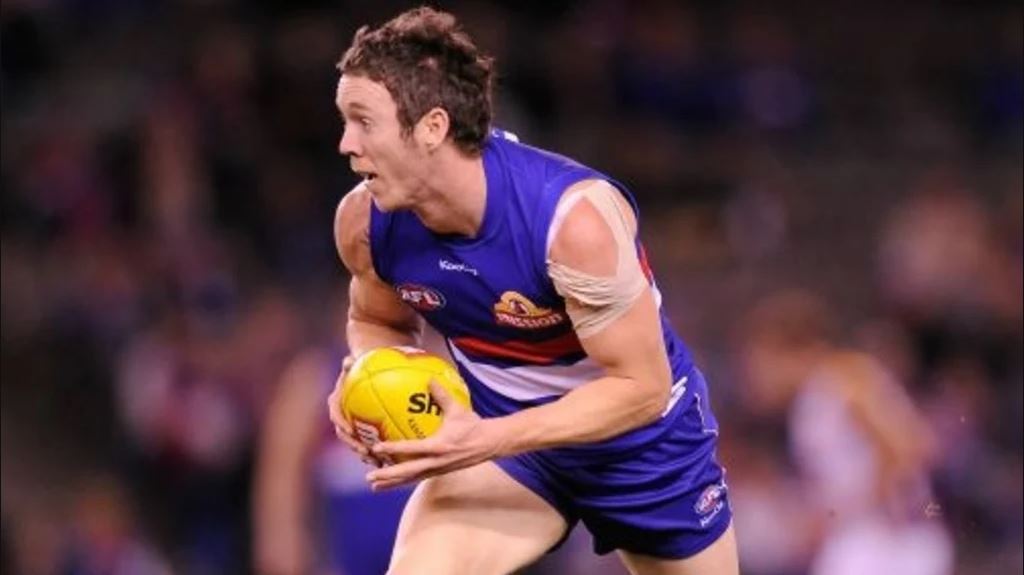
Never fully in sync with the norms of footy, Murphy generated as many headlines for his opinions on controversial issues as for his on-field exploits.
With the Iraq invasion looming in 2003, he protested during the Bulldogs’ official 2003 team photograph by writing the words “NO WAR” on his forearm. By current standards, that gesture might seem innocuous, but it was shocking enough at the time to warrant a warning from then-AFL operations manager Andrew Demetriou, that political displays would not be allowed on the playing field during the season proper.
With that admonition a distant memory, Murphy took it up a few notches the following decade.
He generated headlines before Australia’s marriage equality vote in 2017 by calling the previous discriminatory regime against gay marriage policies “embarrassing”. But that was a cause célèbre among many AFL personalities.
Murphy really stuck his neck out by supporting Adam Goodes in 2015, a time when many football people – from the top down – were giving decidedly mixed messages. Goodes, of course, had dared to broach one of the great taboos of Australian society: the plight and treatment of our indigenous people.
For his trouble, Goodes was subjected to what eventually became a vicious and career-ending tirade of boos and verbal abuse from fans seemingly threatened by the fact that he “went there”.
During Indigenous Round in 2013, Goodes had shamed a young Collingwood supporter who had called him an ape, pointing her out before a national TV audience at the MCG one fateful Friday night.
The young fan’s age was secondary to what she had screamed, but that did not prevent a certain columnist from the aforementioned opinion pages from framing the incident as “virtue signaling footy star uses elite profile to belittle young girl”. The racism behind this incident was secondary, in the columnist’s eyes. “Goodes should stick to footy”, was the conclusion many reached.
Cue arguably the ugliest episode of racism in sports since Jackie Robinson became the first black baseball player in the US major leagues in 1947. Goodes was hounded out of football within sight of 400 games, and Murphy was having none of it. After wearing Goodes’ number at a coin toss – before it was fashionable to do so – he expressed himself eloquently in newsprint.
“Adam Goodes is one of my heroes. He’s a hero because he’s got chin,” Murphy wrote in The Age. “To watch a strong Indigenous man continually keep getting up and playing on, so beautifully, despite the abhorrent sound of a racist minority, has been something to behold. Every time I’ve heard the boos of this mob, I’ve hung my head in despair, chin to chest. There is no training or armour for those kinds of hits to the soul”.
A ghost writer did not pen those words for Murphy. It was all him. Inspired by another footy sage, Brent Crosswell, Murphy became known as a “footballing poet”, a man of insight and empathy whose Age column became a must-read. Clearly, he had given the Goodes matter (and others) a great deal of thought. No need to “stick to footy”, Bob.
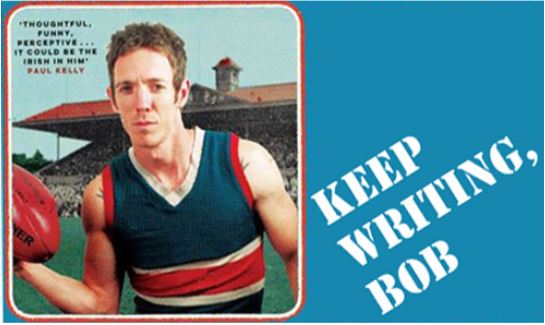
BASIL ZEMPILAS
A long-time TV, print and radio personality in Perth, the former WAFL ruckman/forward thought he was in line to replace David Koch as co-host of Sunrise on Channel 7. It wasn’t to be, with “Kochie” signing on for another spell. As a result, Zempilas opted out of those long Perth-Sydney flights to host “Weekend Sunrise”, keeping it local henceforth.
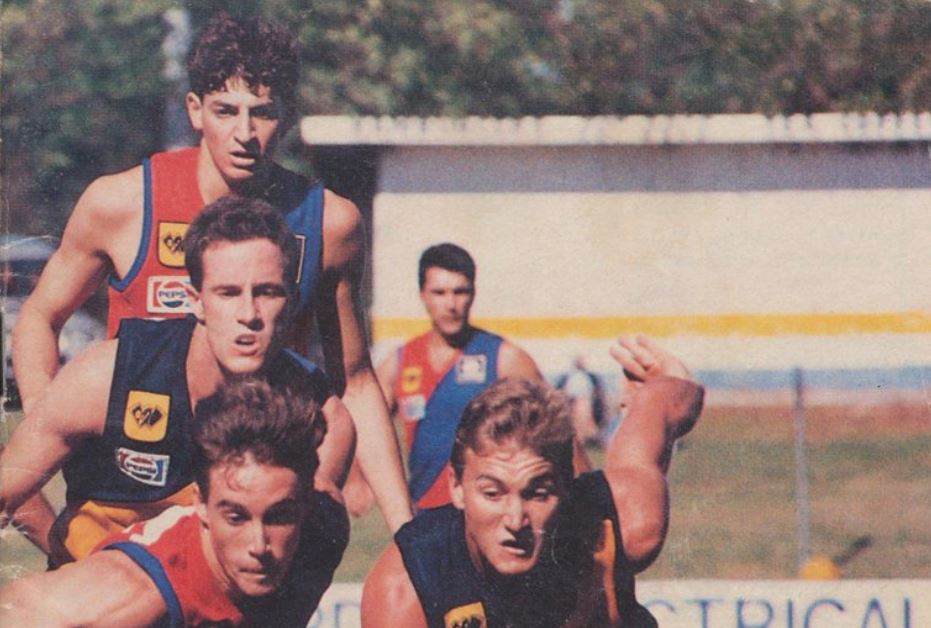
Never one to let a setback like that get the better of him, Zempilas quickly trod the well-worn media-to-politics path when he won election as Lord Mayor of Perth last October. Concerns expressed by his opponents during the campaign – namely, that he would use his media presence to promote both himself and his agenda – will resonate with Victorian footy fans, who have had 20 years of that.
Known as a “bit of a spruiker” with a reputation for stirring the pot in the politically incorrect world of talk radio, it took Zempilas just 11 days as Lord Mayor to land in hot water when, while scoffing at the notion that LGBTQ+ people should wait until they’re 18 before defining themselves by gender, he came up with the following zinger: “If you’ve got a penis mate, you’re a bloke”.
When his radio 6PR co-host asked how now-Lord Mayor Zempilas would handle the prospect of meeting a constituent who identifies as female but has a penis, he responded with an iteration for the ages: “handle the penis?”
When I read that last quote for the first time, I’ll admit to the kind of knee-jerk reaction this article is about: “Don’t quit your day job”.
The only difference is that mine was an admonition for Zempilas to stay away from comedy, a profession which is clearly beyond him. The calculated controversy he sought to stir up that day might have earned him a couple of ratings points back when he was “just” a media personality, but, unless your name’s Donald Trump or Mark Latham, it’s just not on in the wider world of politics.
PLEASE HELP US CONTINUE TO THRIVE BY BECOMING AN OFFICIAL FOOTYOLOGY PATRON. JUST CLICK THIS LINK.
Reaction was swift. A “Stand Up to Transphobia, Protest Basil Zempilas” march was accompanied by petitions for him to stand down as mayor, and to move the annual Pride WA festival to a suburb outside of Perth.
Straight into damage control, Zempilas quickly interviewed LGBTQ+ activist Graeme Watson to “better educate” himself before uttering a mea culpa: “I forgot I was mayor”.
Within weeks, Zempilas was no longer at 6PR (officially because of ownership clashes between Nine, the station’s owner, and Seven, where he does the bulk of his work) but demand for his services (and opinions) remained high. He now co-hosts a morning show on Perth’s Triple M.
Zempilas is university-educated. His degree in Media Studies and Mass Communications (a version of which I also studied) included units dealing with the need to be aware of (and, by implication, sensitive toward) the intricacies of society from a media perspective.
Such ‘intricacies’ included a growing number of people coming out as LGBTQ+, even back in the ‘90s, when Zempilas graduated. It appears those lessons were lost somewhere between the ivory towers of Murdoch University near Fremantle and the “politically incorrect-and-proud-of-it” environs of 6PR breakfast talk radio in East Perth.
It’s hard to believe a man as smart as Zempilas “just forgot” those lessons. Chances are he simply ignored them, either voicing his own ignorance on the subject or, more outrageously, deliberately catering to the lowest common denominator of homophobic bigotry among his audience.
Zempilas says he’s learned his lesson, but the need for ratings-driven controversy persists. Just ask repeat offender Eddie McGuire.
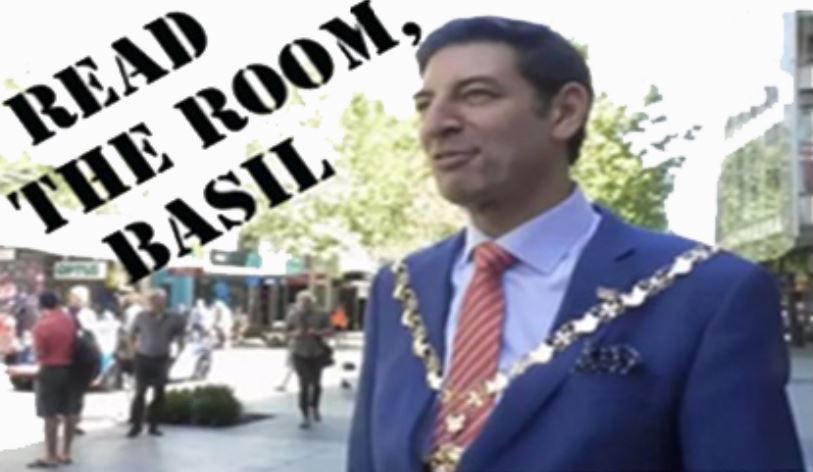
ROHAN CONNOLLY
Twitter followers of “RoCo”, the founder and proprietor of Footyology since 2017 – know this article would be incomplete without reference to him, and the Twitter trolls who bait him with “stick to footy” (“Ding Ding!”) on a seemingly daily basis.
A footy tragic from early years listening to Jack Dyer and Ian Major (“3KZ is football!”) Connolly parlayed his love of the game into a media career entering its 38th year. Over that period, he has racked up multiple awards and earned the respect of some of the game’s greats, including – I should point out – the aforementioned Leigh Matthews.
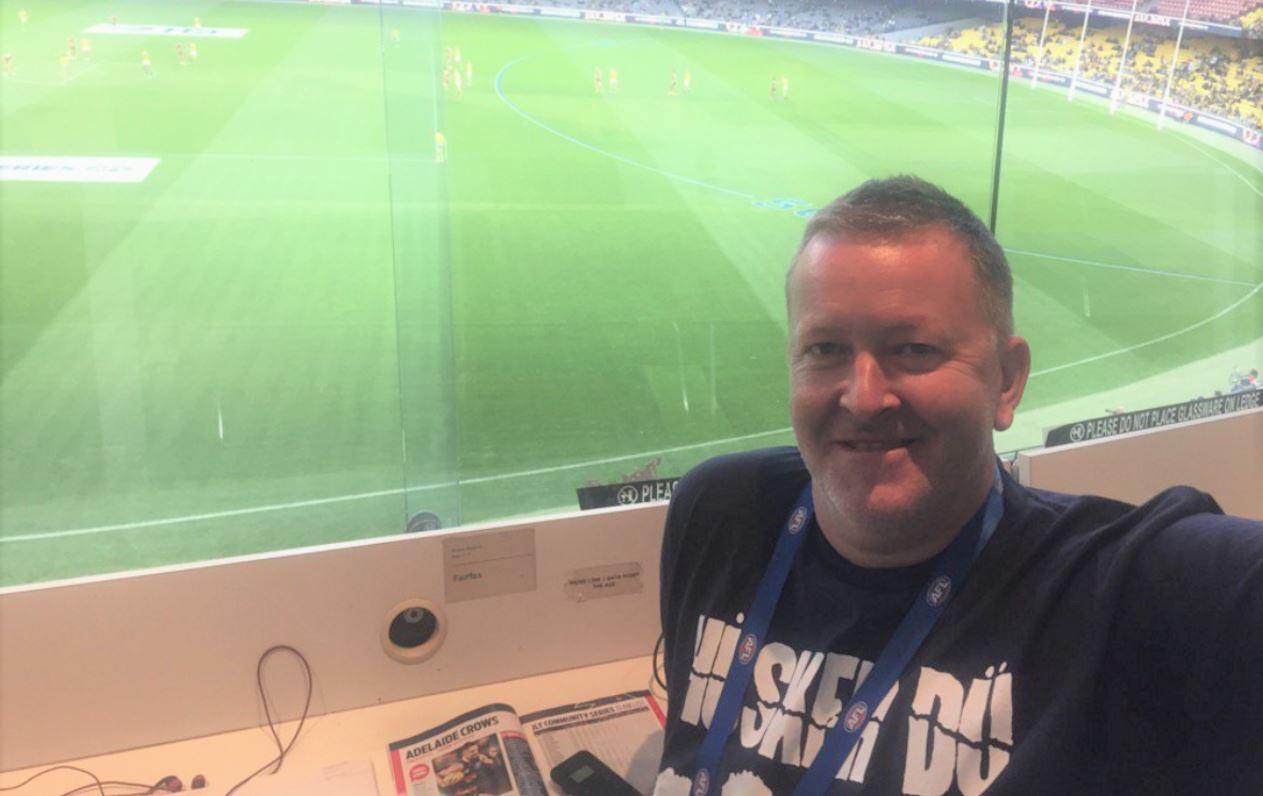
Having read my glowing words above, readers may be surprised to hear that I disagree with Rohan on a number of fronts.
Unlike RoCo, I’m no supporter of Julian Assange (what he does isn’t journalism, Rohan) and don’t get me started on his choice of footy clubs. That said, I respect his opinions on current affairs, which clearly aren’t a regurgitation of something he saw on TV, read online or had passed down verbatim by family.
Rohan’s father, the late Keith Connolly of “The Herald” and “The Age” film critic fame, was active in left-of-centre politics over decades. As with most father-son relationships, this obviously had some impact, but Rohan’s perspective is not a facsimile of his dad’s.
“I am progressive on social issues, and I want a fair society, but I’m not as far to the left as some in my family”, he told me.
Unlike many on the left, Rohan doesn’t have rigid ideological views on how we achieve that fair society. More regulation in some areas, and definitely a lid on the power of one particular media organisation, but (are you listening, trolls?) he doesn’t see total government control as necessary to that end, or even desirable (the failure of the Soviet Union seems to have been noticed).
Unlike Basil Zempilas and myself, Rohan wasn’t taught journalism in a lecture theatre. He went to the “school of hard knocks” via a cadetship at the Herald and Weekly Times from 1983 (he went to “The Age” later that decade).
Quickly establishing himself as a more-than-decent sports reporter then sub-editor, he fact checked and tidied up copy at the “Sun News-Pictorial”, not all of it from the sports desk (do I have your attention, trolls?)
Sub-editing requires an on-the-spot analysis of whether the copy is clear, factual and cogent (that is, it makes sense to the average reader) and that required applying critical thinking and other skills to important stories from politics to crime and (yes) footy.
Nobody who successfully processes and analyses that much current affairs information in real time is a dill. Connolly’s politically-aware upbringing and experience at the coalface of journalism mean he’s more qualified to discuss politics and the state of the world than, say, an opinion writer who was fast-tracked into the role of “expert” because her father was Frank Devine.
When you read a political opinion from someone who’s claim to fame is related to sport or sports journalism (be it Dermott Brereton, Sam Newman, Peter FitzSimons, Rohan Connolly or whoever) do a little critical thinking of your own and ask: what’s the background of this person (is it exclusively in sports, or is there more to this person?) and does the writer know what s/he’s talking about? You’ll save yourself a lot of knee-jerking that way.
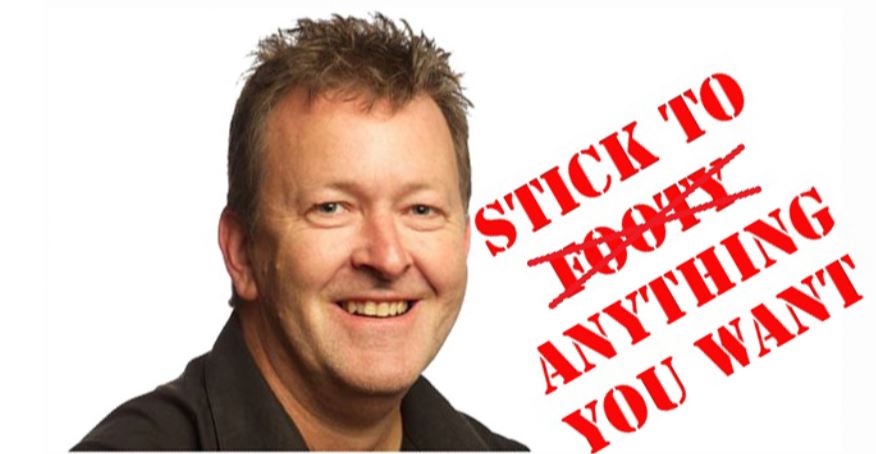
I have an admission to make: the ‘case studies’ detailed above aren’t exactly a scientific representation of the many sports personalities who dabble in social commentary.
I could reasonably be accused of cherry-picking cases where people on the left are on solid ground, while those on the right look like fools. So let me be clear: some on the right wing of politics offer well-reasoned arguments, while some lefties make idiots of themselves with value judgements based on nothing but emotion.
I don’t have the time or digital column inches available for a deep dive on that question, but what I will suggest from my own observations is those on the left tend to be a bit more careful. And who can blame them? Before his stint at Fairfax newspapers, Keith Connolly worked at the Herald and Weekly Times, long known as a conservative bastion.
A left-winger through and through, Keith survived there, in Rohan’s words “by being very diplomatic”. In other words, he was careful. A new generation on the left is uninhibited by Cold War considerations, but most remain mindful of the need to stay on solid ground by checking their facts. They’re careful.
Perhaps the least inhibited lefty, republican and former Wallaby FitzSimons, still does his due diligence, even when engaging in trivial online spats with Andrew Bolt.
While arguing the toss with over what went down during an after-function fracas in Sydney many years ago, FitzSimons cited two independent eyewitnesses. Bolt didn’t feel obligated to find even one. He did, however, grab a headline by accusing FitzSimons of “cheering an attack” on former Herald Sun editor, Piers Akerman.
“Apparently [in FitzSimons’ eyes] violence is good if conservatives are the targets”, wrote Bolt. The “weapon” used in this ‘attack’ was a quantity of white wine tossed in Akerman’s general direction by radio host and ABC veteran Mike Carlton.
A few droplets reached their target, to Bolt’s horror, but paramedics were not called to the scene, and police made no arrests. Far from “cheering on violence”, FitzSimons was merely amused by it all.
A trivial spat, perhaps, but this is a telling demonstration of how skewed our media is, and how jaundiced our resulting perceptions are.
Commentators on the right often feel entitled to say whatever they want, without bothering to verify, because they can. Who is going to pull them up, the right wing proprietor, or the editor hand-picked by the right wing proprietor?
The only ‘accountability’ faced by the likes of Bolt comes from the criticism he regularly receives from a “chattering class” (his words) whose audience reach is decidedly limited.
I refer to ABC commentators (watched by just 18 per cent of viewers, according to recent ratings) the odd non-News Limited columnist (representing just 27 per cent of newsprint circulation) plus bloggers and activists.
Online content is growing, but News Limited has a robust presence there, too. In all likelihood, Bolt doesn’t care what the “chattering class” thinks – not when he’s cheered on by his own large following and emboldened by an obvious imprimatur from his editor and proprietor.
It’s this uneven playing field that allowed Zempilas (he of the powerful Seven West Media) to make unresearched, irresponsible and outrageous comments and ride out a few weeks of community outrage before resuming business as usual.
If a high-profile lefty had done something comparable, he or she would have been eviscerated by outlets whose reach is many times that of, say, the 18 per cent of consumers who watch ABC television. They may never have been heard from again.
The uneven playing field encountered generally by the left doesn’t just manifest in the “small target” caution its proponents employ to survive. More crucially still, the right’s stranglehold on media affects the very way consumers of news interpret events and define reality itself.
How else can you explain how the scientifically-backed, common sense measures employed in Victoria to stop the spread of Covid19 are redefined in the Herald Sun – successfully with many of its consumers – as job-killing, totalitarian government overreach?
Last time I checked, lives were more important than commerce, but don’t tell the folks at Southbank. Further afield, how else can you explain how 40 per cent of Americans believe that properly-researched and fact-checked news emanating from mainstream media outlets is “fake news”, because Murdoch’s Fox News and Donald Trump told them so (and if you think it can’t happen here, I invite you to watch an evening of Sky News).
Finally, how else can the crying need for US authorities to accept that Black Lives Matter be turned on its head and re-defined as “All Lives Matter” – Orwellian chicanery at its worst – so successfully that a fellow as smart as Leigh Matthews can swallow it hook, line and sinker?
In fairness to Leigh, the list of Australians not heavily into current affairs is long. It’s most of us, in fact. That’s something I, personally, have always found odd. Politics (in all its forms) is the process by which our wages are decided, our taxes spent, our priorities as a society agreed upon.
It isn’t “just another thing” to be interested in if you can be bothered, like “Game of Thrones” or, dare I say it, Australian Rules football.
If more Australians took a serious interest in current affairs, they would inevitably apply more of the critical thinking required to see through some of the fallacies discussed above: “transgender Australians are deviates” … “Goodes is a crybaby” … “stick to footy, Rohan”.
It would, furthermore, make the jobs of Andrew Bolt, Miranda Devine, Piers Akerman, Alan Jones, Peta Credlin, Chris Kenny, Janet Albrechtsen, Tim Blair, Gerard Henderson and a disconcertingly long list of fellow travellers that much harder.
It would, in short, help bring about a society that thinks for itself (rather than being told how to think) and acts in its best interests, something we don’t always do.
Isn’t that worth the effort?

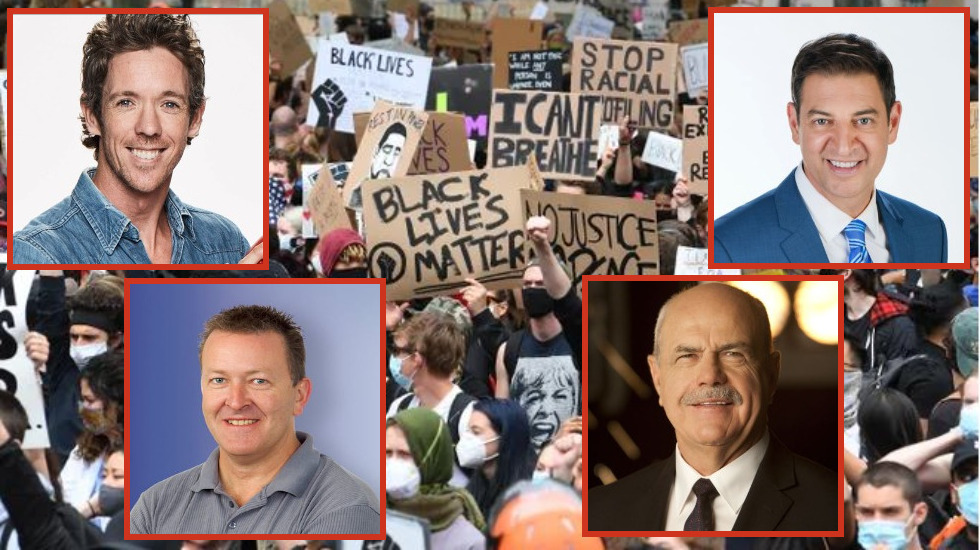
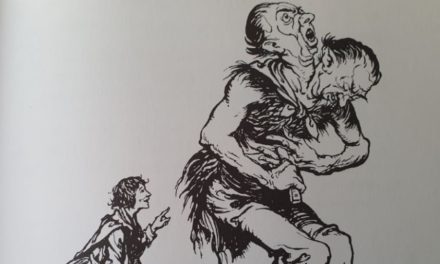
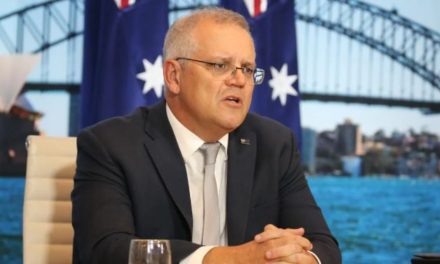
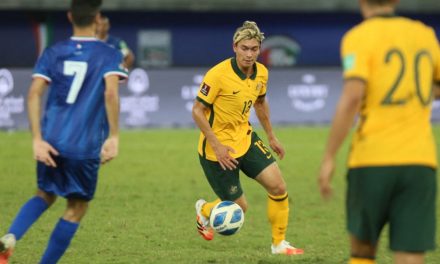
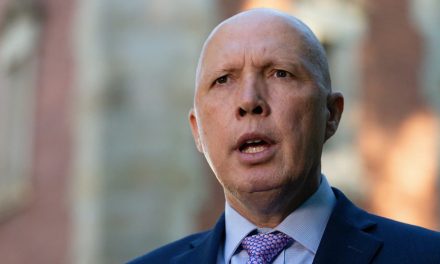

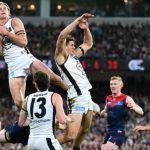
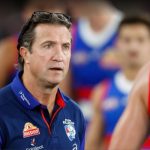



All I got from this was basically……if I don’t agree with your politics, you should stick to footy.
Biased rubbish regardless of what political persuasion you are…( although you certainly made it clear what direction you’re coming from)
You telling Mathews to stick to sport is as arrogant as anybody telling Rohan or Bob to do the same!!!!!!???
An excellent analysis of one of the major impediments holding us back from the society and people we could become – one that is just and fair for ALL
What about Sam Newman? Or do you leave him out because you don’t agree with his politics? That makes you every bit as bad as the Herald Sun which you mocked in your opening par.
So is it ok for sports people to involve themselves in politics? Or only if it’s YOUR politics?!
From the author: Trust me, Sam was next in line, but time/space constraints meant he missed out. That plus I was trying to write a serious story.